Steve Bannon, political strategist for Donald Trump, urged appeals court to overturn Jan. 6 contempt conviction
- Oops!Something went wrong.Please try again later.
- Oops!Something went wrong.Please try again later.
WASHINGTON – Steve Bannon, the political strategist and former White House aide to Donald Trump, urged a federal appeals court Thursday to overturn his conviction for contempt of Congress for defying a subpoena about the Capitol attack on Jan. 6, 2021.
The House committee that investigated the attack sought testimony and documents from Bannon for insight about Trump's strategies after losing the 2020 election.
“Stephen Bannon deliberately chose not to comply in any way with lawful congressional subpoena,” Assistant U.S. Attorney Elizabeth Danello said.
But his lawyer, David Schoen, argued the subpoena violated his 5th Amendment right against self-incrimination and 6th Amendment right to a fair trial because the former president invoked executive privilege to block his testimony. Bannon relied on his previous lawyer's advice that he couldn't waive executive privilege, Schoen said.
“Mr. Bannon acted in the only way he understood from his lawyer that he was permitted to behave,” said Schoen, who added that Bannon was wrongly blocked from making that argument at trial.
A minor facet of the Jan. 6 investigation, Bannon's case could set new rules governing the assertion of executive privilege balanced Congress' ability to subpoena information from the executive branch. A three-judge panel of the D.C. Circuit Court of Appeals − Judges Cornelia Pillard, Justin Walker and Bradley Garcia − will hear the arguments.
Bannon was one of two people convicted – along with former White House aide Peter Navarro – for defying House subpoenas for the Jan. 6 inquiry. Trump and his allies have blasted the House inquiry and the prosecutions as partisan attacks aimed at the former president.
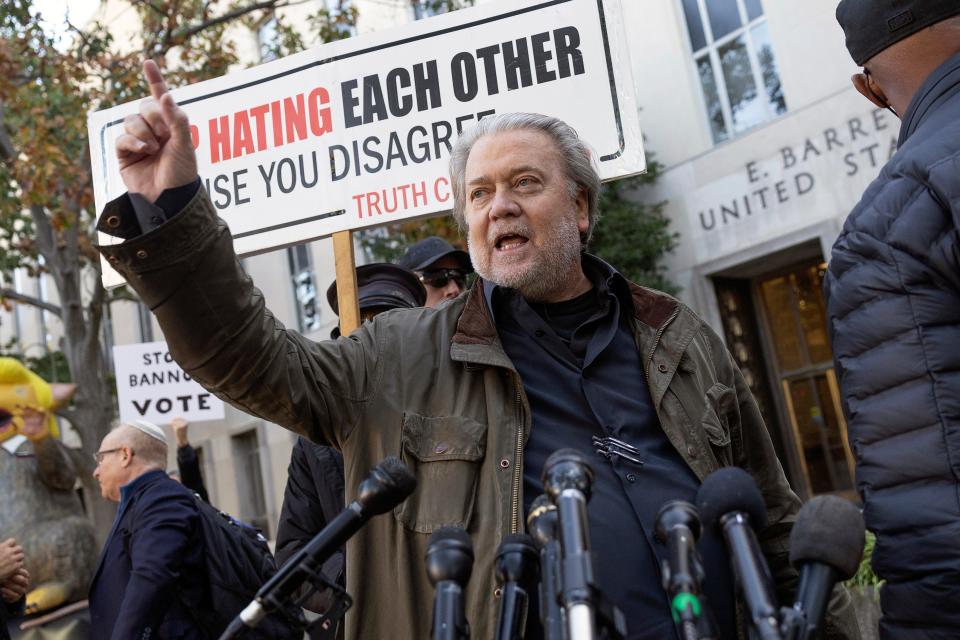
What is Bannon arguing?
Bannon was convicted at trial in July 2022, sentenced to four months in jail and fined $6,500. But Schoen argued that the trial judge made a mistake in not allowing Bannon to defend himself by saying he relied on his lawyer's advice about executive privilege.
Schoen argued that Bannon's former lawyer, Robert Costello, accepted the subpoena Sept. 23, 2021. A White House counsel, Justin Clark, told Costello on Oct. 5, 2021, and confirmed in a letter the next day that Trump would vigorously invoke executive privilege to block his testimony and keep their communications confidential.
"Bannon was barred from putting on any evidence or argument that he believed he responded to the subpoena in the only way the law permitted, once executive privilege was invoked and that he acted in the manner his experienced lawyer directed him that he had to act as a matter of law," Schoen said.
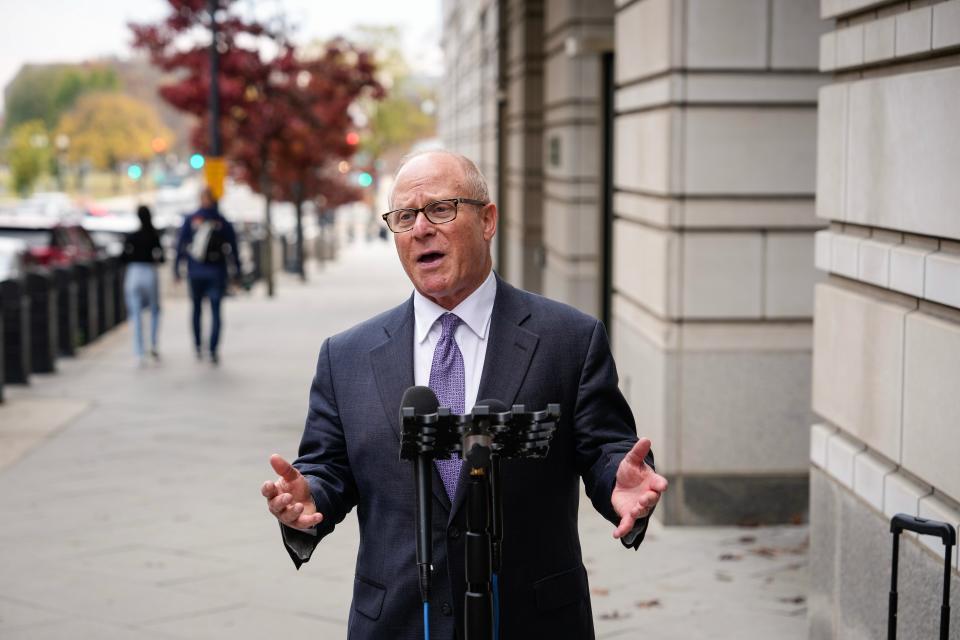
At sentencing, U.S. District Judge Carl Nichols allowed Bannon to remain free because the appeal “raises a substantial question of law that is likely to result in a reversal or an order for a new trial," Schoen wrote.
Bannon has also argued the subpoena was illegitimate because of how the House committee was created. But federal courts have so far upheld the panel's subpoenas.
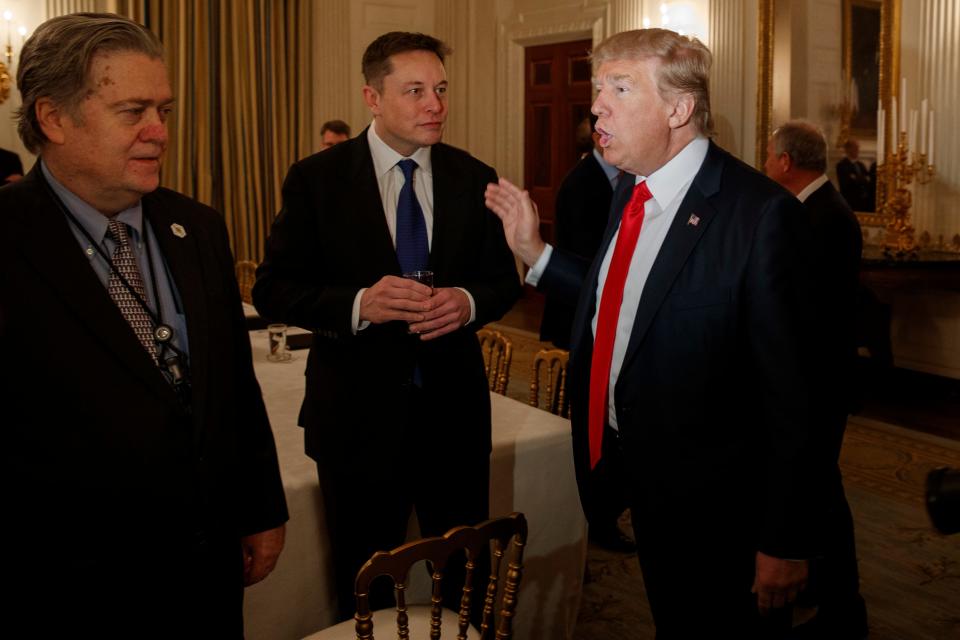
Why was Bannon subpoenaed?
The committee sought to question Bannon, a political strategist for Trump, in part because he told associates from China on Oct. 31, 2020, Trump would falsely declare victory even if he lost the election and said it would be a “firestorm.”
In a podcast, Bannon said former Vice President Mike Pence “spit the bit,” meaning he was no longer supporting Trump’s efforts to overturn the 2020 election, which the committee described as amplifying the pressure on Pence.
Bannon called Trump at least twice on Jan. 5, 2021.
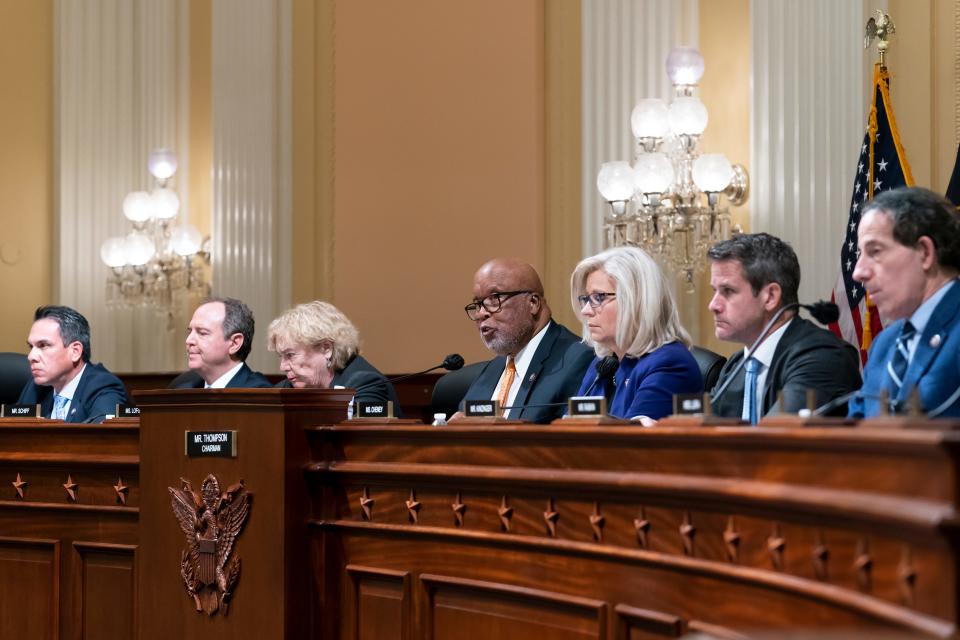
What did prosecutors argue?
Prosecutors led by U.S. Attorney Matthew Graves argued Bannon ignored the subpoena’s demands. Bannon refused to appear at all, but prosecutors said he was required to appear and challenge each question under potential executive privilege one at a time.
"In fact, President Trump’s attorney correctly cautioned that Bannon was not immune from testifying," prosecutors wrote. "The subpoena focused on Bannon’s activities as a private citizen and addressed many topics for which executive privilege could not possibly apply."
Prosecutors said the subpoena sought information largely unrelated the White House, such as his "War Room" podcast; financing for people who attended a Trump rally Jan. 6, 2021; a meeting at the Willard Hotel on Jan. 5, 2021; communications with Congress and communications with groups such as the Proud Boys and Oath Keepers, whose leaders have since been convicted of seditious conspiracy.
Inquiries about communications with Trump dealt with 2020 and 2021, after Bannon left the White House, prosecutors said.
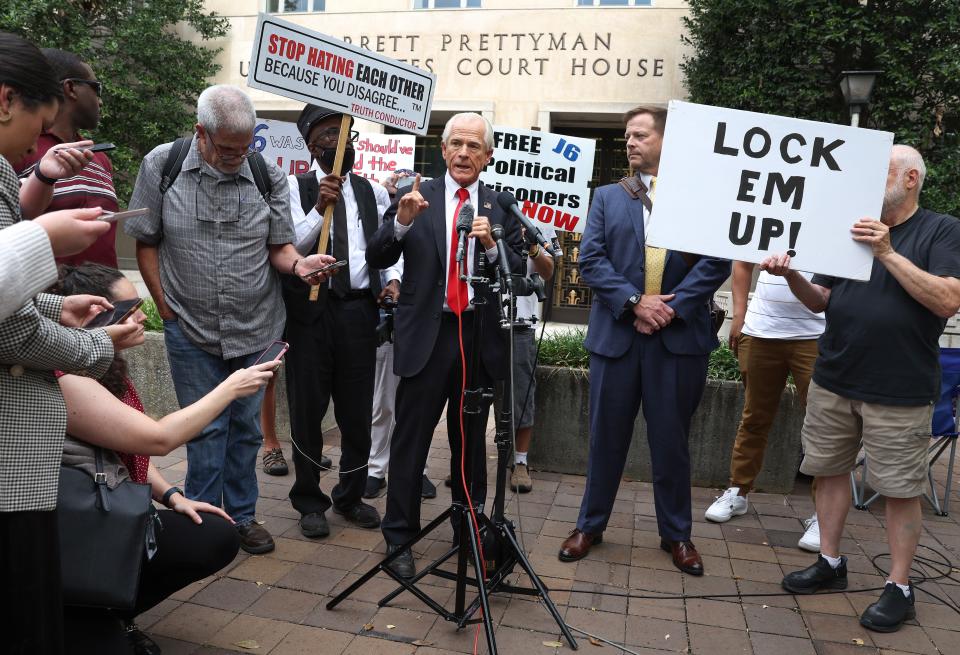
Was anyone else charged?
The House voted to hold four people in contempt and urged the Justice Department to charge them criminally for defying subpoenas. Besides Bannon, the others were:
Peter Navarro, a former trade adviser to Trump, who discussed ways to overturn the election results, awaits trial on charges of contempt of Congress. Trump has asserted executive privilege to keep their conversations confidential. Navarro's sentencing is scheduled Jan. 25.
Mark Meadows, former White House chief of staff, who helped Trump organize his rally on Jan. 6 and coordinated efforts to challenge 2020 election results, wasn’t charged. Meadows has since been charged with Trump in a Georgia election racketeering case and both have pleaded not guilty.
Dan Scavino, former White House deputy chief of staff for communications, who coordinated Trump’s social media, wasn’t charged.
This article originally appeared on USA TODAY: Steve Bannon seeks to overturn conviction for defying Jan. 6 subpoena

